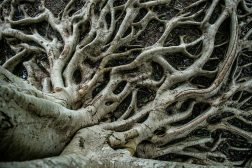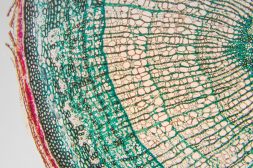Definition
”noun, plural: ground meristem
(botany) The primary meristematic tissue from where the ground tissues (i.e. non-dermal or non-vascular tissues) develop from
Supplement
A meristematic tissue (meristem) is a type of plant tissue that is chiefly associated with growth. It is made up of cells that are active in cell division. They divide mitotically to produce new cells to enable primary growth or secondary growth of the plant. The primary growth is responsible for the increase in height or length of the plant as opposed to the secondary growth, which is for increasing girth or thickness. The apical meristem is an example of a primary meristem. As the name implies, it is the meristem located in the apical portions of the plant. In particular, it is found in the shoot apex and the root apex. In vascular plants, the apical meristem may give rise to the protoderm, the procambium, or the ground meristem. The meristem that develops into all other plant tissues apart from vascular and dermal tissues is called a ground meristem. Non-vascular, non-dermal tissues are referred to as the ground tissue. There are three fundamental types of cells that make up a ground tissue, i.e. parenchyma, sclerenchyma, and collenchyma cells. They fill in the soft parts of the plants, such as cortex, pith, pericycle, etc.
See also:
Dictionary > Ground meristem




